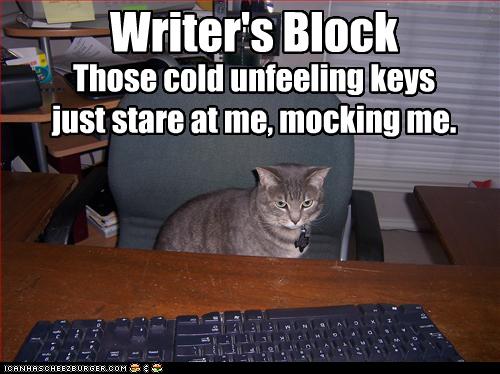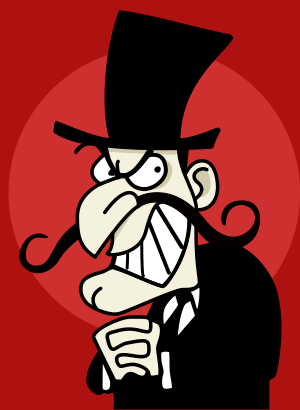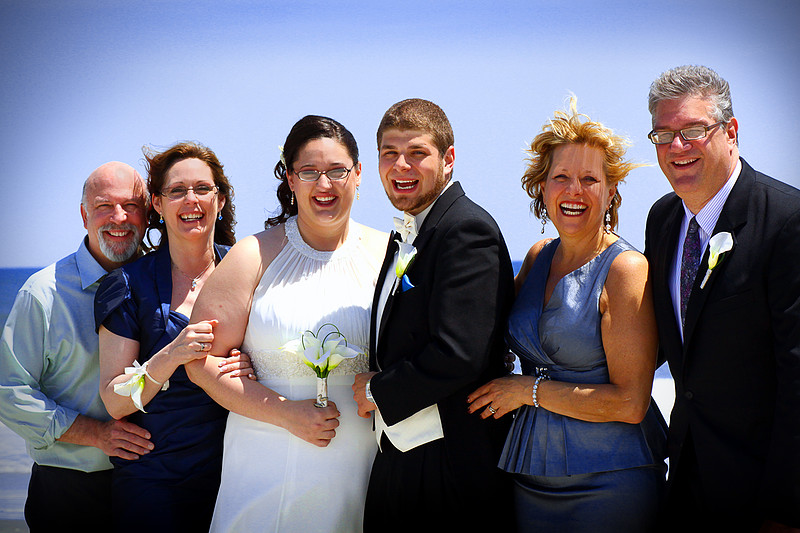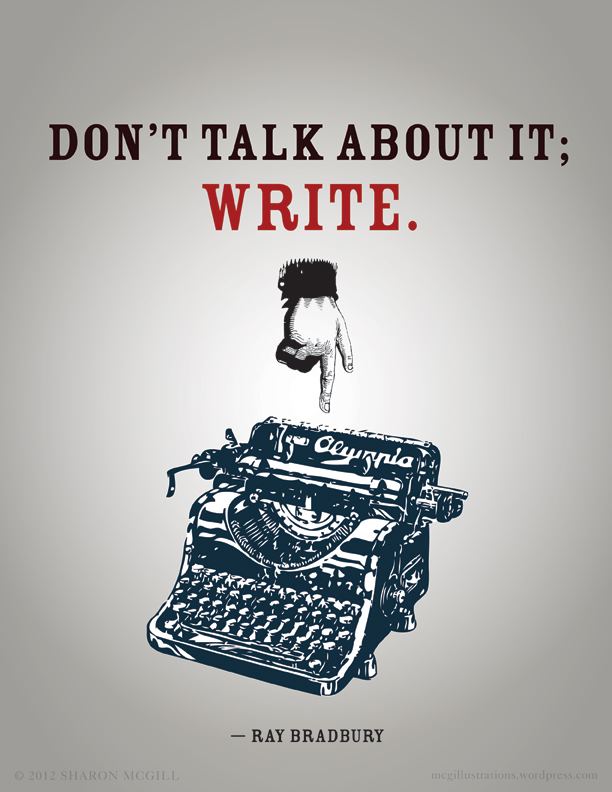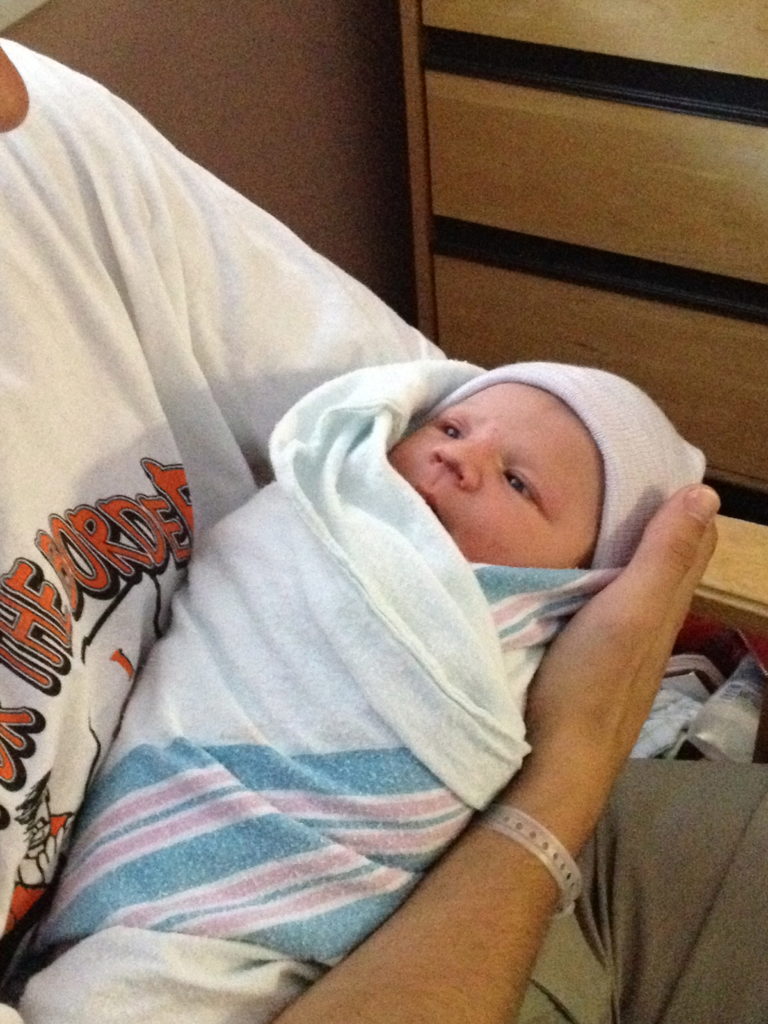If you’ve never had writer’s block, go away.
If you’ve never had writer’s block, you should be writing this blog.
If you say you’ve never had writer’s block, I don’t believe you.
Writer’s block is actually several conditions masquerading as one. Saying, “Help me, I have writer’s block” is as useful as going to your doctor and saying, “I feel icky.”
You must figure out what kind of writer’s block you have in order to cure yourself.
Blank Screen Writer’s Block, Type 1 – You stare at the screen or the empty page and you cannot think of a single thing to write. You want to write, but you have no ideas or words.
Blank Screen Writer’s Block, Type 2 – You stare at the screen or the empty page and you are so overwhelmed by ideas and words that you don’t know where to start.
Ticking Clock Writer’s Block – You put off starting a project and now the deadline looms and you are paralyzed.
Hysterical Monkeys Writer’s Block – Tribes of hysterical monkeys inhabit your brain, screaming about what a crappy writer you are. This, understandably, makes it hard to write anything.
Obsessive Compulsive Writer’s Block – Whenever you sit down to write, you are seized by the uncontrollable urge to clean your oven, scrub your roof shingles, or alphabetize the entire Internet on a hand-crocheted doily that you will then use as the signature item in the Etsy store that you’re going to open in time for the holiday sales rush. You forget about your novel until your writing time is up and you snap out of your fugue state.
The first cure is a simple one. Step away from the desk and go for a long walk. Or a run. Or swim. Something that will warm the muscles and cool your fevered brain. You might want to carry a scrap of paper and pencil with you (not in the pool) in case a line or two pops up. Regular exercise is an under-appreciated part of the writing process.
If you are suffering from Blank Screen Writer’s Block, Type 1 or 2, grab a book off your shelf. Any book that you enjoyed will do, though I prefer poetry for this remedy. You can also use the Poetry Foundation’s browsing function or mobile app. Copy a few lines from a poem or a novel and then treat those lines as a prompt and freewrite from them. (Do not use those borrowed lines in your novel; that would be called “stealing.” Use them to kindle your imagination only.)
Ticking Clock Writers Block can be cured by telling your editor or professor or whomever that you are going to be late, or by pulling up your big-girl pants and recognizing that fretting about how much time you don’t have is actually a way of creating drama in your brain so you don’t have to deal with the real issue; what is the next sentence you are going to write.
Hysterical Monkeys Writer’s Block is best dealt with by picking up all the monkey shit they are throwing at you and fling it back in their faces. Write on an index card in large letters, “CHILL OUT. IT’S ONLY A DRAFT.” and post it just above your screen. Be sure to preserve the first draft of your novel so that you can compare it to the final draft. That will shut up those dumb monkeys.
Obsessive Compulsive Writer’s Block is kind of magical. Recognize what you are doing and why, and then very quietly sit down with paper and pen. Write a list of all of the things that you could do when you are in this mindset, from braiding your nose hair to teaching the cat how to operate the coffee maker. The list can contain up to 4,000 items. Then list five things that you want to do for your story, like brainstorm character names, decide on a setting for one chapter, or writing a short bit of dialog between Character A and Character B. The trick is to give yourself a small, manageable task and ease into the writing.
There are several other small variants of writer’s block, but I don’t want to discuss them publicly until I finish my quantitative analysis on them. In fact, I might make this the topic of my dissertation, and then I can submit papers to pompous academic journals and maybe I’ll be invited to present at the Pompous Academic Writing Forum next year in Mongolia, and I should look up how much it costs to fly to Ulaanbaatar and…..
Or I could just sit down and write.
Yeah, that’s what I really want to do.
PS – For another author’s take on the whole “To MFA or not to MFA” question, read Maureen Johnson’s blog.
Today’s Quote
“If you get stuck, get away from your desk. Take a walk, take a bath, go to sleep, make a pie, draw, listen to music, meditate, exercise; whatever you do, don’t just stick there scowling at the problem. But don’t make telephone calls or go to a party; if you do, other people’s words will pour in where your lost words should be. Open a gap for them, create a space. Be patient.”
Hilary Mantel
Today’s prompt: Write a letter to your writer’s block. Describe how it works and how you really feel about it. Then serve it with eviction papers and write out precisely what you are going to do the next time it kicks in.
Scribble… scribble… scribble…

